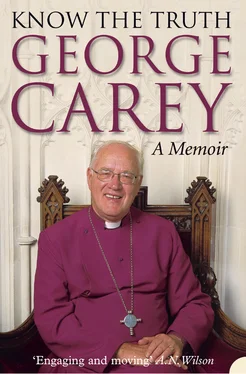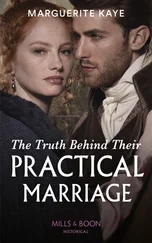The episode prepared me for aspects of culture that I was to meet later in my ministry as Archbishop – namely the erosion of holiness by a cultural view that sexual intercourse is of little more significance than shaking hands. When this is combined with a view of the Bible as itself being culturally conditioned, with no authority in matters of sexuality, the drift into hedonistic narcissism becomes inevitable. The Church which blesses such immorality, or calls it holy, ends up as nothing more than a benign religious club.
Returning to theological education after seven years away in parish ministry brought to the surface some of my deepest questions and worries about the purpose and success of our colleges and courses in turning out effective ministers and priests with the leadership skills to work with others and to build up congregations. Was it our aim to produce theologians? Or to produce pastors and teachers? The curriculum of most colleges and courses did not make the purpose transparent. From my experience of three theological colleges it was clear that the majority of their staffs had little experience of parish life, and even less of leading congregations into growth. But it was also true that the brightest and most visible of students did not necessarily make the most dedicated and effective clergy.
These two facts worried me a great deal. If the task of the Church of England’s colleges and courses is to turn out godly men and women with fire in their bellies to teach, evangelise, pastor and build up congregations, then the logical conclusion is that that task is closer to vocational training than it is to making men and women academics. But compelling though this argument was, it was not without problems. My own experience told me that we could not ignore the intellect. While I wanted my students to leave college with a clear focus, dedication and enthusiasm for building up churches, I was also concerned to equip them to handle ideas, and that meant taking theology seriously. How could one square that circle?
I had also become aware of a very significant difference between Catholic and Anglican models of theological education. The Roman Catholic model focused on ministerial formation, whereas the Anglican model was more intent on information. It seemed as if we attempted to prepare people by loading them with knowledge, while Roman Catholic priests were formed in their spirituality and the application of theological knowledge to the life of the Church.
I found myself arguing more and more for two significant changes in theological teaching. First, that the present basic education of three years for those under thirty, and two years for those over, was woefully inadequate. Our starting point should be four years for those under thirty and three years for those older. Furthermore, my experience suggested to me that the best way to prepare would be by sandwich training, with substantial time spent learning from effective ministers and priests. Lastly, the whole purpose of theological education and training must be earthed in prayer and spiritual transformation. I was convinced that effective ministers – of all traditions – shared one striking characteristic: they had a burning love of God and a yearning to share Him with others. However, the responsibility for delivering such radical changes in ministerial formation was not mine – it belonged to the Church centrally.
My thoughts about the necessity of changes for the future of the Church’s ministry did not stem from any misgivings about my students. We were able to attract men and women of great ability, and student numbers grew to such an extent that by the time I left Trinity in 1987 it was the largest theological college in the Church of England. Furthermore, the divisions between the Clifton College Trust and Trinity had been resolved to everyone’s satisfaction.
At the end of my fifth and final year at Trinity one of our most gifted students, Phil Potter, mentioned to me in passing that there was a lot of talk about my becoming Bishop of Bath and Wells. I was flabbergasted to learn this, but what I was even less prepared for was the way that the thought both disturbed me and prompted unhealthily ambitious thoughts. Up to that point, senior office in the Church had not entered my head. I was prepared to stay at Trinity until my work was over, and then return to parish ministry. But ambition now began to enter my psyche, and I both liked it and loathed it. Looking back on that time, I am still not sure how to interpret the ambition I felt. Of course, ambition is not always unhealthy. When one has gifts to offer any organisation, the desire to give leadership for the good of the whole is not bad. A part of me was suggesting that I had proved myself for a wider leadership role, and that there was nothing wrong in this unexpected desire to become a Bishop. However, to this day I feel that I was encountering something within me that was not good. I was desiring the role of Bishop more than the task of leadership it demanded. It was important to resolve this, which I attempted by an honest analysis of my desires and by taking them to God in prayer.
In my journal from this period I wrote: ‘It’s an awful cancer. I know at the level of my mind that this is all about baubles; that serving Christ is the most important thing. That being faithful, obedient and ready is all He requires. But deep within there is a demon which loves power and authority, and he will be disappointed if nothing comes.’ A realisation dawned that I needed to rededicate myself to the work of Trinity College. And in prayer I dedicated myself to God’s work rather than my own concerns. I found this liberating, as though a weight had been lifted from me.
Two days later, on 23 June 1987, an envelope dropped through our letterbox from Number 10 Downing Street. The letter, signed by the Prime Minister Mrs Thatcher, simply said that the Crown Appointments Commission had put my name forward, and that she hoped I would accept this offer. After careful thought and prayer I did, and was consecrated Bishop of Bath and Wells on 3 December 1987.
‘What the average Englishman wanted was a Church which would respond to his needs, teaches a message which he could understand, and lift him to a higher level of life – but, this, somehow, was just what he never got.’
Ronald Jasper , A.C. Headlam (1960)
THE MOVE TO WELLS WAS NOT without its sadness. We had enjoyed our time in Bristol greatly, living for the first time in our married life not in a college community or a house tied to a church, but in a normal street. And so much had been achieved at the college. With the co-operation of the faculty and council the college was now united, phase one of an exciting building programme was complete, and Trinity was full and attracting ordinands from throughout the Church of England.
True, an intriguing future beckoned, although aspects of it terrified me. Not the actual work, because I was comfortable with a leadership role and the speaking and teaching that went with it. But I was ignorant of the secondary aspects of being a Bishop – what one had to wear, what the expectations were, and what were the different responsibilities in a diocesan team.
Of course there were people I could rely on for advice and information. The suffragan Bishop of Taunton, Nigel McCulloch, a young and very popular Bishop, offered his assistance readily, as did David Hope, the Bishop of Wakefield, later to become Bishop of London and then Archbishop of York. Both were from the Catholic wing of the Church, and were on hand to show this evangelical what to wear and when to wear it. Not that copes, mitres and chasubles bothered me much. Although I preferred to dress simply, my attitude was that if this was what the Church wanted me to wear, then I was quite prepared to don the unfamiliar for the dignity of the office.
Читать дальше












